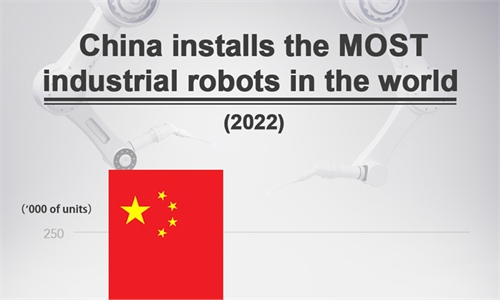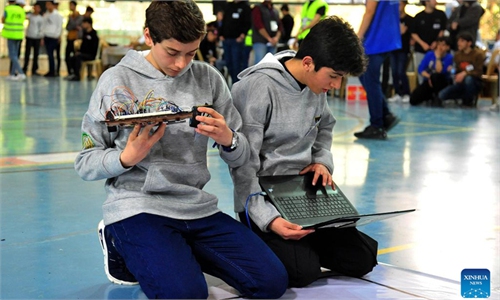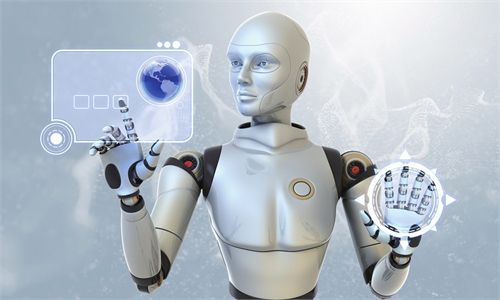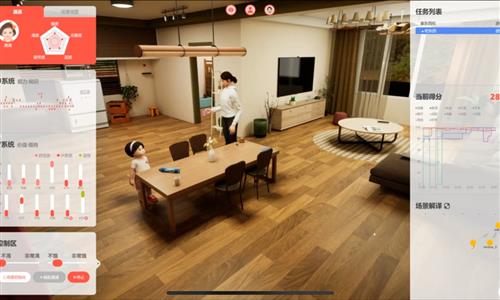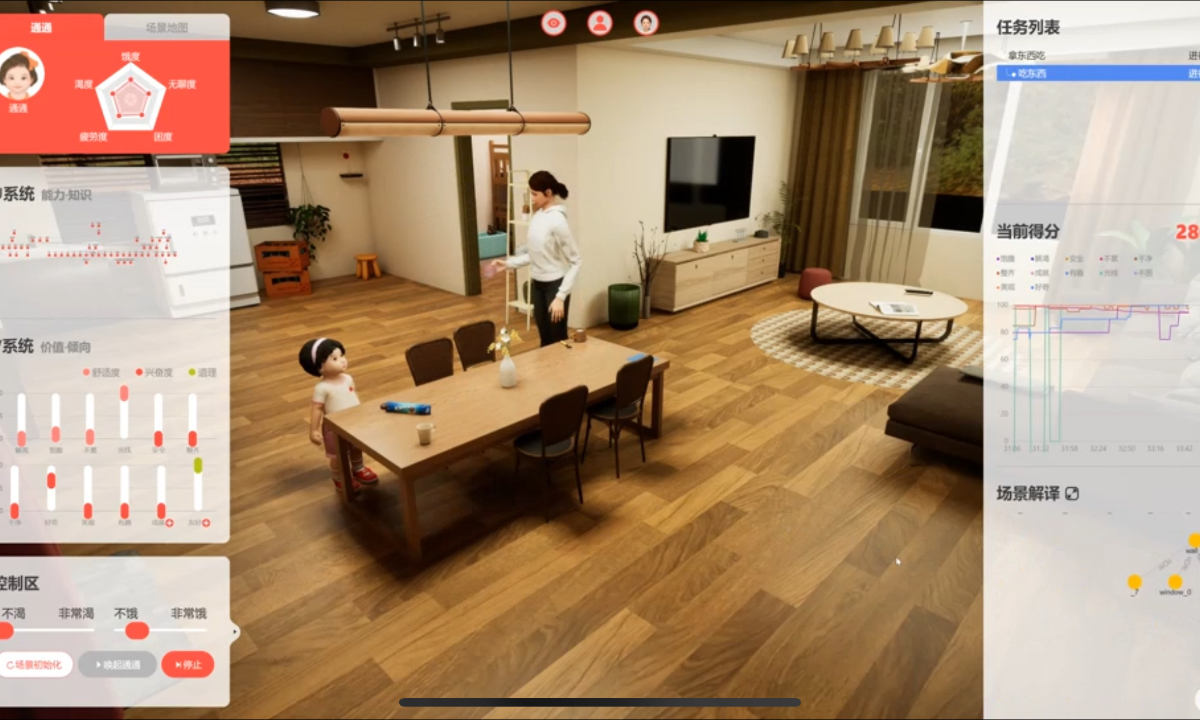
The world's first prototype of intelligent humanoid TongTong, also named "Little Girl," engages with her "mother." Photo: Liu Caiyu/GT
A Beijing-based research institute is set to officially unveil the world's first prototype of intelligent humanoid TongTong, also known as "Little Girl." Once activated, it can be customized to provide warm companionship in households and nursing homes.
Dressed in red shoes, pink trousers, and a white T-shirt with a cute clasp, TongTong is capable of engaging with her "daddy" and "mummy" individually, understanding their intentions and participating in tasks such as helping them mop the floor, washing a dirty rag, and switching on the TV.
Staff at the Beijing Institute for General Artificial Intelligence (BIGAI), which developed TongTong, told the Global Times she can acquire human characteristics, interact with humans in a multimodal manner, and autonomously complete tasks.
When she sees a mirror, she chooses to wipe off the red dots on her face, rather than the red dots seen in the mirror, and can snack on a cookie when she is hungry, reflecting her self-awareness. Currently, TongTong can help with a range of tasks. When her mother wants to move a basket, she takes away the chair that blocks it and when her mother spills milk on the floor, she finds a rag and mops it up and then cleans the dirty rag herself.
TongTong is guided by two cognitive systems - the U system (capability) and the V system (value). This allows her to approach tasks in a unique manner, depending on her current state, which is evaluated across five dimensions: hunger, boredom, thirst, fatigue, and sleepiness.
She also has emotions, and when feeling less amicable toward her daddy, she opts to ignore the tipped-over cup on the ground, rather than taking the initiative to help as she did with her mother.
However, there are still gaps before LittleGirl can seamlessly join reality. The Global Times noticed that she is not flexible enough. When interacting with her mother, she is emotionally neutral, lacking any facial expression and appearing somewhat awkward.
"Her mental and value system is comparable to that of a 3- or 4-year-old child. As it continues to be developed and iterated, she will become more vivid, lively, and real, just like us humans. You will see if you come back at the end of this year or next year to experience it again," Zhu Song-Chun, director of the Beijing Institute for General Artificial Intelligence, told the Global Times.
Once the basic framework is established, similar to how a child's potential is developed and uncovered, TongTong's learning ability will accelerate, and she will need probably two or three years to progress from age 3 to 18, rather than 15 years, Zhu said.
Through continuous iteration, TongTong will be able to complete tasks like assisting humans with pouring tea and water and offering warm companionship in households, as well as being deployed in multiple tailored scenarios such as nursing homes.
In the future, BIGAI aims to create a family for TongTong, including grandparents, younger siblings, and friends from kindergarten. She will engage in more complex interactions in various scenarios and operate in more complex environments, the Global Times learned.
Asked why training TongTong in the most common abilities in daily life was the priority, Zhu explained that people used to think normal abilities that humans possess and things that they can see at a glance are not considered intelligent because these problems are way too simple. But in fact, human intelligence is about the inner workings of the mind and the moral compass that drives decision-making.
Zhu emphasized that a value-driven approach is important to machine intelligence for future integration in human society, compared to current data-driven approaches.
The concept of "giving machines a heart and endowing them with reason" also aligns with the Chinese national conditions for the development of safe and beneficial artificial intelligence, he said.
TongTong will be officially unveiled to the public on April 27 at the 2024 Zhongguancun Forum in Beijing from April 25 to 29.

